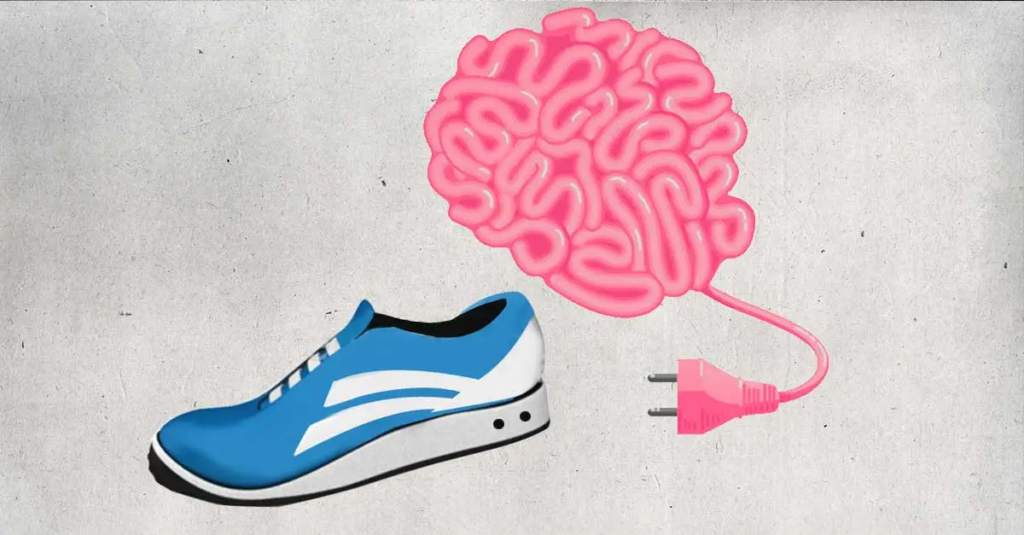
Are you curious about the mental health benefits of running? If you’ve spent time around runners, you’ve likely heard this playful quip: “Running is cheaper than therapy!” While running should never be seen as a substitute for professional mental health support, it is indeed a potent supplement. Running transcends mere physical fitness; it serves as a powerful tool for enhancing mental health. Indeed, the world of running is not just a realm of endurance and personal bests; it’s also a sanctuary for mental and emotional well-being. To understand this, we need to explore how running interacts with our bodies and minds.
Whether you’re a dedicated marathoner or a casual jogger, hitting the pavement or the trail can offer profound psychological benefits. As we embark on this journey through the mental health benefits of running, you might just find yourself inspired to hit the pavement and experience these rewards firsthand.
1. Reducing Stress and Anxiety
One of the most immediate and well-documented mental health benefits of running is its capacity to alleviate stress and anxiety. Engaging in physical activity triggers the release of endorphins, often termed “feel-good” hormones. These natural chemicals interact with receptors in your brain to diminish the perception of pain and produce a euphoric feeling known as the “runner’s high.” This sensation plays a crucial role in mitigating stress and fostering relaxation.
The repetitive nature of running helps to break the cycle of negative thinking that often accompanies stress. As you focus on the rhythm of your steps and your breathing, your mind is redirected away from daily stressors. This form of meditative exercise allows for mental clarity and a respite from the pressures of everyday life. Additionally, running outdoors and immersing yourself in nature further enhances these stress-reducing effects. Studies have shown that exposure to green spaces can improve mood and lower stress, making outdoor runs even more beneficial for mental health.
2. Combatting Depression
Running is a formidable ally in the battle against depression. Numerous studies indicate that regular aerobic exercise, including running, can be as effective as medication for some individuals in alleviating symptoms of depression. Exercise stimulates the release of neurotransmitters like serotonin and dopamine, which are essential for regulating mood and emotional well-being.
Furthermore, running promotes neuroplasticity—the brain’s ability to reorganize itself by forming new neural connections throughout life. This is especially beneficial for individuals experiencing depression, as it helps improve overall brain function and resilience. The sense of achievement and purpose derived from setting and achieving running goals contributes to a more positive outlook and can counteract depressive feelings. Each run, particularly when it involves reaching personal milestones, provides a tangible sense of accomplishment and boosts self-esteem, aiding in the fight against depression.
3. Enhancing Cognitive Function
Regular running has a substantial impact on cognitive function and can help protect against cognitive decline. The increased blood flow to the brain during exercise enhances oxygen and nutrient delivery, which is crucial for maintaining optimal brain health. This improved circulation boosts memory, attention, and problem-solving skills.
Research indicates that regular physical activity, including running, can stimulate neurogenesis—the process of forming new neurons in the brain. This is particularly important as we age, as it helps sustain cognitive function and delay the onset of age-related cognitive decline. Running also improves executive function, encompassing skills such as planning, organizing, and multitasking. Over time, this leads to enhanced mental clarity and sharper cognitive abilities, which can be particularly beneficial for academic and professional performance.
4. Improving Sleep Quality
Good sleep is essential for mental health, and running can significantly enhance sleep quality. Regular runners often report experiencing deeper, more restorative sleep. The physical exertion from running helps regulate your circadian rhythm, facilitating both falling asleep and staying asleep.
Exercise, especially aerobic activities like running, increases the duration of deep sleep stages. This restorative phase of sleep is vital for cognitive functioning, emotional regulation, and overall mental well-being. Moreover, running can alleviate symptoms of insomnia and other sleep disorders by promoting a healthier sleep-wake cycle. This improvement in sleep quality contributes to better mental health and overall quality of life, thus, providing another way that running benefits mental health.
5. Boosting Self-Esteem and Confidence
Another of the mental health benefits of running is boosting self-esteem and confidence. Achieving running goals, whether it’s completing an ultramarathon, running your first 5K, or maintaining a consistent running routine, can provide a significant boost to self-esteem and confidence. Each milestone reached is a testament to your dedication, discipline, and perseverance.
Training for and completing a running event fosters a strong sense of accomplishment and pride. This feeling of achievement extends beyond running and positively impacts other areas of your life. The discipline and commitment required for running can translate into increased confidence in personal and professional endeavors. The mental resilience developed through running helps build a positive self-image and fosters a greater sense of empowerment, translating the mental benefits of running into broader life improvements.
6. Providing a Sense of Community
Running can also enhance mental health by fostering a sense of community. Joining a running group, participating in local races, or engaging with virtual running communities allows you to connect with individuals who share similar interests and goals. This social interaction provides essential support, motivation, and encouragement.
The sense of belonging and camaraderie found in running communities can be incredibly uplifting. Social interactions with fellow runners create a supportive network that helps maintain motivation and commitment to your running routine. These connections can lead to lasting friendships and a sense of belonging, both of which are crucial for emotional well-being and mental health. The social aspect of running enhances mental health by providing a supportive and engaging community. Here in Fort Collins, there are many opportunities to get involved in the running community.

7. Offering a Break from Technology
In today’s tech-driven world, constant connectivity and digital distractions can be overwhelming. Running provides a much-needed break from screens and notifications, allowing you to reconnect with your thoughts and the natural environment.
This digital detox helps reduce mental fatigue and improve focus. Running outdoors offers the opportunity to experience nature, which can be calming and rejuvenating. The break from technology and the immersion in natural surroundings provide a refreshing mental reset, helping to alleviate feelings of burnout and promote a clearer, more focused mind. By disconnecting from digital devices, running allows you to engage in a form of self-care that enhances mental clarity and emotional well-being.
8. Encouraging Mindfulness
Another of the many mental health benefits of running is that it encourages mindfulness. Running encourages mindfulness by bringing your attention to the present moment. Whether focusing on your breathing, the rhythm of your footsteps, or the surrounding scenery, running fosters a mindful state. This practice of being present can diminish negative thinking patterns and improve emotional regulation.
Mindfulness through running helps develop a heightened awareness of your body, its sensations, and your thoughts and feelings. This increased awareness aids in managing stress, anxiety, and emotional challenges more effectively. By applying mindfulness techniques learned during running to other areas of life, you can enhance overall emotional resilience and mental well-being. The present-focused nature of running serves as a practical exercise in mindfulness, benefiting mental health beyond the running experience itself.
9. Enhancing Resilience and Coping Skills
Running can also contribute to building resilience and improving coping skills. The challenges and setbacks experienced during training and races teach valuable life lessons about perseverance, determination, and overcoming adversity. Each run, especially those that push your limits, reinforces your ability to handle difficulties and bounce back from setbacks.
The mental strength developed through running can be applied to various aspects of life, helping you face challenges with greater confidence and composure. The resilience gained from overcoming the physical and mental hurdles of running translates into improved coping strategies for managing stress and adversity in everyday life. This enhanced resilience contributes to overall mental fortitude and emotional stability.
10. Fostering a Healthy Routine
Incorporating running into your daily routine fosters a sense of structure and discipline. Establishing a regular running schedule helps create a consistent routine that can improve overall well-being. This structured approach to exercise not only contributes to physical health but also supports mental health by providing a sense of purpose and accomplishment.
A healthy routine that includes regular running can help stabilize mood and reduce feelings of chaos or unpredictability. The discipline required to stick to a running schedule enhances time management skills and promotes a balanced lifestyle. By integrating running into your routine, you establish a positive habit that supports both physical and mental health.
Conclusion
Running is a multifaceted activity with extensive mental health benefits. From reducing stress and anxiety to enhancing cognitive function and sleep quality, the positive impact of running on mental well-being is undeniable. Here at Up and Running Physical Therapy, we are passionate about treating patients holistically, as we understand that there are so many cumulative physical and mental health benefits of running.
Incorporating running into your routine can lead to holistic improvements in your mental well-being. The sense of accomplishment, increased self-esteem, and enhanced cognitive function are just a few of the many rewards running offers. So, lace up your running shoes, hit the trail or the pavement, and start experiencing the mental health benefits that come with each stride. Whether you run to clear your mind, elevate your mood, or simply enjoy the physical benefits, running is a powerful tool for enhancing your overall quality of life. Embrace the journey, and let the transformative power of running enrich not only your fitness but your entire outlook on life.

